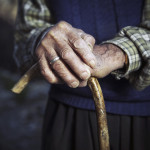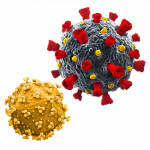Aging with HIV is not how you think it’s going to be. In my experience it’s very different.
As a 70-something—the official term is a septuagenarian—I’m not recognizing the version of aging I was quite expecting. Why? Because the aging discourse so often involves 50-something people living with HIV and looking ahead; they’re well-meaning folks who haven’t been there.
Or our health prospects are pontificated upon by middle-aged researchers predicting doom and gloom scenarios dealing largely with the biological combinations of HIV disease and aging. That of course, though, typically ignores the realities of aging. Aging with HIV, after all, leads to being aged with HIV, a state of being that has few advocates and little science reporting behind it. Even the basics are devoid of detail. How many of us are there? Who knows! We aren’t interesting enough or important enough or vocal enough to be counted, at least in Canada.
The aged are the most neglected and, I’d argue, most misunderstood people in the HIV community.
So in an effort to start filling the vacuum, here’s my handy guide to being old with HIV. None of this stuff they tell you. Here are five things you need to know.
Your later life likely has little to do with HIV
By now managing HIV is old hat. You swallow pills without thinking. You have probably learned to handle HIV stigma long ago. You see your HIV doctor infrequently. True, we are no strangers to doctor’s waiting rooms, but we’re there for issues related to hearing, eye-sight, teeth, mobility issues, etc. That is not, of course, how HIV with aging was advertised, where HIV-related comorbidities rule the day. The comorbidities we face are, in fact, much the same as our HIV-negative elderly neighbours. True, we ache more and stairs are more of a challenge nowadays, but is this the product of years with HIV? Mostly not, I’d say.
It’s about managing change
Managing your health is often now eclipsed by managing … well, being old. Income issues, housing issues, mobility issues, memory issues and more are all about to be turned upside down. Think change is for young people? Maybe, but we elderly are hit with it big time too, at a time we really don’t want to be bothered with fresh challenges. Who knew?
Mortality issues come off the back burner
It’s a little bit scary, but death is creeping up on us. That’s a thought we have maybe avoided our whole life. There is now a feeling of being on the brink, of a descent into…something. Nobody, but nobody in the HIV movement is talking about this, despite the fact that the number of elderly people living with HIV is increasing exponentially. It feels like others don’t get it.
We need to think about support
Sometimes it will look as if your circle of support is dwindling. Chances are your local AIDS Service Organization is no longer in the picture. Your friends, or even your partner, may have challenges of their own. Your contemporaries are getting old too, or even passing away. Combating loneliness can suddenly become an issue and so can identifying who is going to be looking after you when you truly need help. You try not to think about this, but you have to.
It gives you a new perspective…on everything
Older and wiser isn’t necessarily the case, but we act like it is. We think we have the answers to everything, from how to end the epidemic to what’s best to watch on Netflix. Or religion. Or politics. Combine that with a certain crustiness that creeps up on us with age, and we can be truly formidable assholes. Not me, of course, but other people. We, naturally, are perfect, or we think we are. In any event, HIV has shaped our lives in ways we never thought possible. Who would have thought, for example, that for many of us it has been a great experience?
All of this is, of course, shaped by my own experience. Your experience may be quite different. Whatever, we can pat ourselves on the back for having survived against all the odds. Don’t pity us, even if we act like assholes. Be proud of us instead. We are survivors!








17 Comments
17 Comments